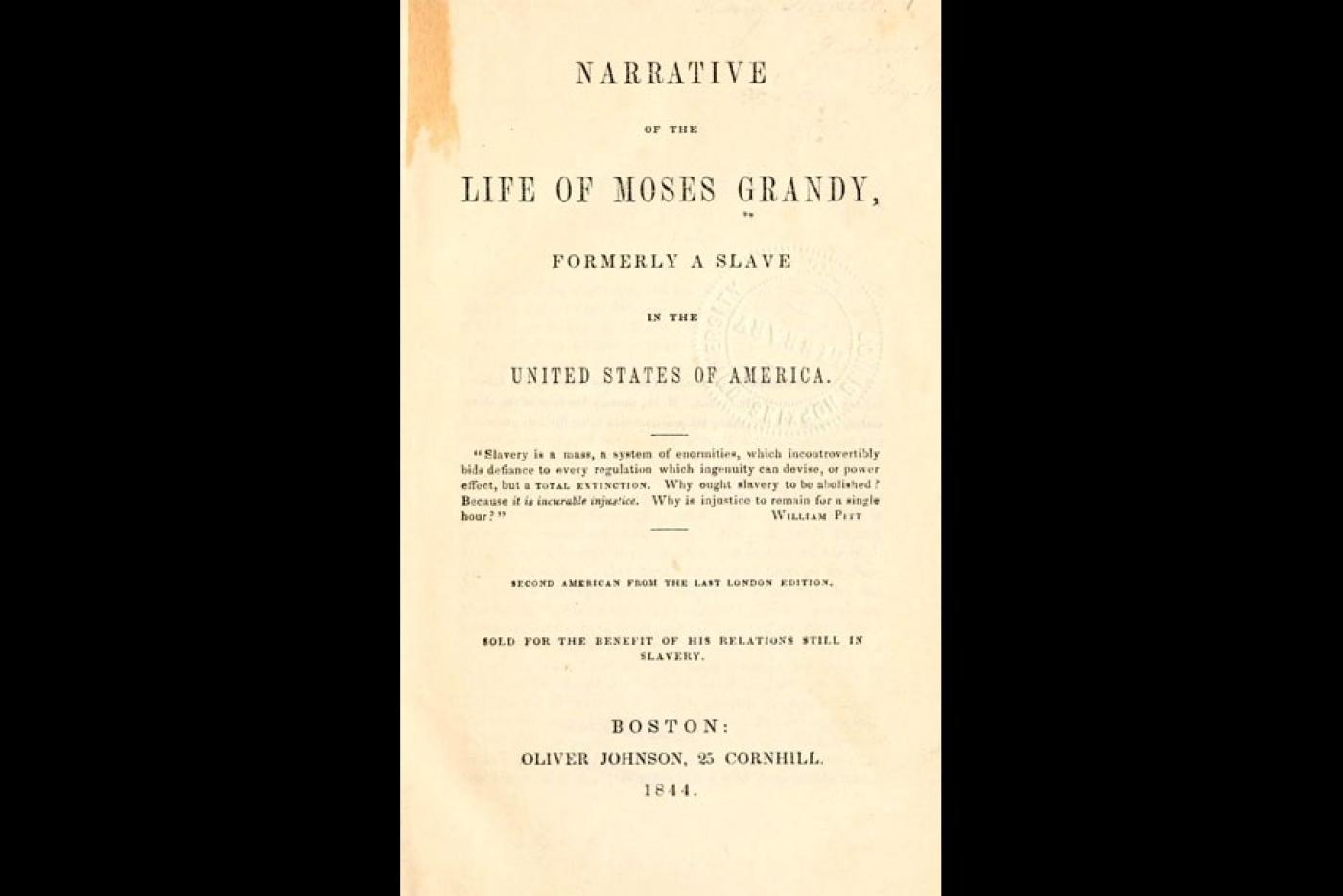A formerly enslaved man who published his autobiography soon will be recognized with a North Carolina Highway Historical Marker. The N.C. Historical Marker Program is part of the N.C. Department of Natural and Cultural Resources.
The marker commemorating the life and accomplishments of Moses Grandy will be unveiled Saturday, Sept. 6 at 10 a.m., at the Historic Camden Courthouse (117 NC Highway 343 S, Camden, N.C.).
Grandy was a skilled seaman and Black antislavery activist who was born into slavery around 1786 in Camden County, N.C. He was owned by several enslavers and worked along the Albemarle Sound and Dismal Swamp until he bought his freedom, moved to Boston, and published an antislavery autobiography. Most of the details of Grandy's life are known only from his autobiography, "Narrative of the Life of Moses Grandy; Late a Slave in the United States of America."
Because Grandy could not read or write, he orated his autobiography to George Thompson, a London antislavery activist with ties to William Lloyd Garrison and the New England Anti-slavery Society, while on a trip to London. Although Grandy's narrative was published as antislavery propaganda, other accounts of slavery in North Carolina at the time verify its major points. He also hoped to purchase his family members' freedom with proceeds from the sale of his narrative. Little is known of Grandy's life outside of the details in his autobiography, including the years following its publication and his death, but his struggle for freedom contributed to the push for the abolition of slavery in the 19th century.
For more information about the historical marker, please visit https://www.dncr.nc.gov/blog/2025/08/22/moses-grandy-ca-1786-1843-99, or call (919) 814-6625.
The Highway Historical Marker Program is a collaboration between the N.C. departments of Natural and Cultural Resources and Transportation.
About the North Carolina Department of Natural and Cultural Resources
The N.C. Department of Natural and Cultural Resources (DNCR) manages, promotes, and enhances the things that people love about North Carolina – its diverse arts and culture, rich history, and spectacular natural areas. Through its programs, the department enhances education, stimulates economic development, improves public health, expands accessibility, and strengthens community resiliency.
The department manages over 100 locations across the state, including 27 historic sites, seven history museums, two art museums, five science museums, four aquariums, 35 state parks, four recreation areas, dozens of state trails and natural areas, the North Carolina Zoo, the State Library, the State Archives, the N.C. Arts Council, the African American Heritage Commission, the American Indian Heritage Commission, the State Historic Preservation Office, the Office of State Archaeology, the Highway Historical Markers program, the N.C. Land and Water Fund, and the Natural Heritage Program. For more information, please visit www.dncr.nc.gov.

